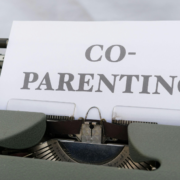Realizing that your child is struggling during and after your divorce can be devastating. You wonder how the divorce impacted their mental health and whether you could have done anything differently. Now, the important thing is to focus on how you and your child’s other parent can support them in their struggles.
Explore considerations for children coping with divorced parents from our legal team.
Navigating New Health Needs in Children After Divorce
Your child may be facing behavioral or mental struggles due to the stress of the divorce. Or, they may be navigating developmental challenges that would have arisen regardless of your marital status. In either case, begin by determining whether you and your spouse agree or disagree on the diagnosis.
Sometimes, a parent notices a change in a child that their non-custodial parent doesn’t realize. Sharing your thoughts on the matter and even seeking second opinions if needed can help you stay on the same page as you support your child.
When one spouse does not agree, they may wonder whether the other parent can force therapy or seek treatment for the child without their consent. The answer depends on the terms of your parenting plan. Your plan should include details about who has decision-making authority for the child, whether that be one or both of you.
How Do You Divide Therapy or Other Medical Costs?
Helping kids after separation may involve taking them to therapy or an emotional support group. You and your spouse will need to understand how you will divide the costs of any new medical or support services they require.
Pennsylvania law generally requires parents to contribute to the child’s financial needs equally. Your child custody and support orders should address this scenario. If not, contact your divorce attorney with questions or to seek updates to the order.
If one parent does not agree with the new diagnosis or therapy needs, you may face additional challenges splitting the costs or responsibilities associated with this new challenge. Seek legal help to gain clarity around your roles and responsibilities.
Can You Alter Your Parenting Plan?
Navigating the impact of divorce on your child may require you to adapt your parenting schedule or plans to better accommodate their needs. Your attorney can help you file a petition for modification with the court.
If you and your child’s other parent agree on the changes and submit a joint proposal for the judge to approve, this process can be relatively fast. If one parent disagrees, you both may need to demonstrate to the judge why the modification is or is not in the child’s best interest.
You may want to modify the parenting plan to:
- Include provisions surrounding splitting therapy costs
- Provide more or less custody to one parent to accommodate the child’s emotional needs
- Seek sole decision-making responsibility
Seek Legal Help With Parenting After Divorce
Knowing how to help struggling children after a divorce in the context of the law and your parenting plan can be challenging. Seek assistance from Karen Ann Ulmer, P.C., to gain clarity around your parenting plan, rights, and responsibilities. Call (866) 349-4117 for a consultation.






